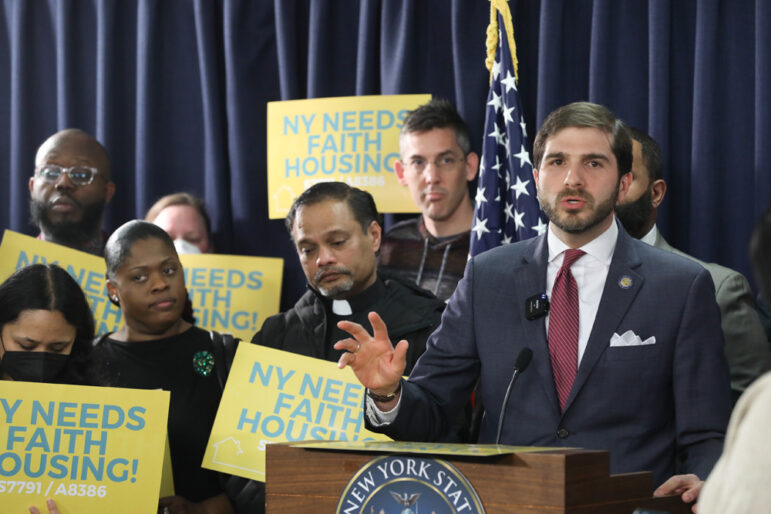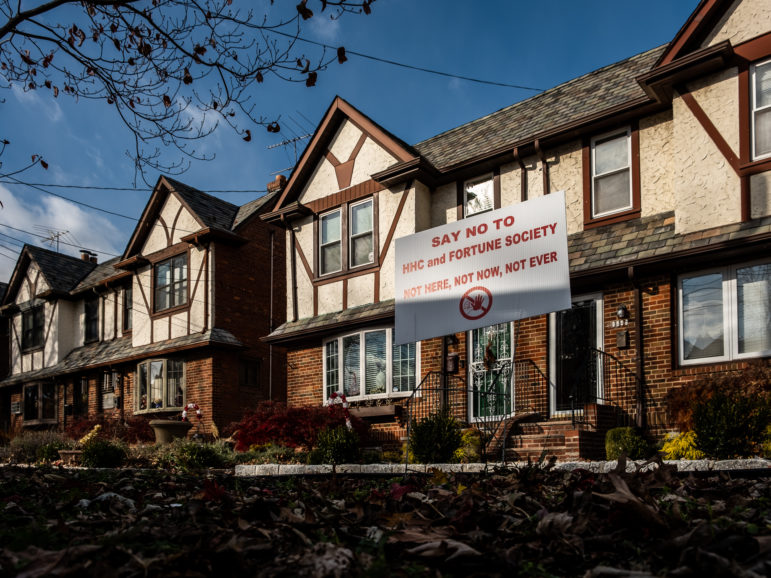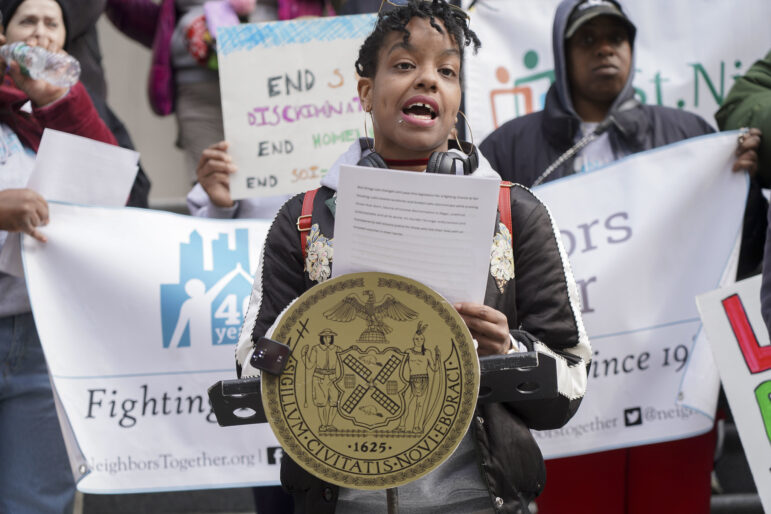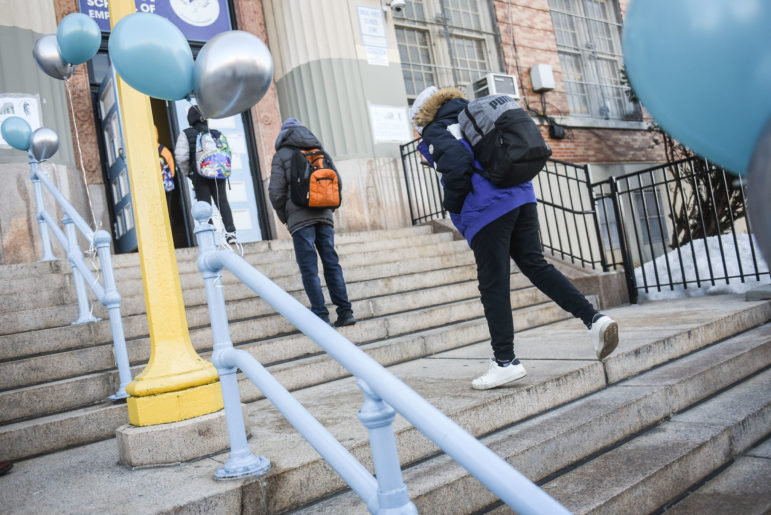“We don’t need to choose between landmarking and affordable housing. We can have both. I wrote this law to explicitly enshrine and protect existing landmarking processes across the state, protections I further strengthened in a recent amendment to the bill.”

State Sen. Andrew Gounardes’ Office
The author, State Sen. Andrew Gounardes, at a rally in support of the Faith-Based Affordable Housing Act in March 2024.With more than 100,000 New Yorkers in homeless shelters every night and more than half of renters in the state paying a third of their income in rent, we need to take bold action to address our affordable housing crisis. That’s why I’m so disheartened to see opposition to my Faith-Based Affordable Housing Act based on misunderstandings and false narratives.
Churches, synagogues, mosques and other faith-based organizations are trusted community pillars that offer crucial services like child care, education, and health care. Many already build affordable housing and want to continue that noble tradition, but can’t because of restrictive zoning.
My Faith-Based Affordable Housing Act would enable houses of worship and other faith-based organizations to more easily build affordable homes on their property. This new housing would be available to all who need it, not just members of a faith community; organizations that develop housing under the Act would be prohibited from discriminating based on religion.
This simple legislation has worked elsewhere, and could be a critical tool in addressing the severe shortage of affordable housing across our state by empowering faith communities to put their values into action. That’s why a diverse coalition of legislators, faith leaders, and civic groups support this Act, and why I plan to fight to pass it in next year’s legislative session.
Some organizations have claimed that the Act could weaken protections for historic sites—but this simply isn’t true. We don’t need to choose between landmarking and affordable housing. We can have both. I wrote this law to explicitly enshrine and protect existing landmarking processes across the state, protections I further strengthened in a recent amendment to the bill.
To understand these protections, it’s important to understand the differences between landmarking and ill-defined concepts like “preserving neighborhood character.” Landmarking is a defined process in which decisions about buildings and neighborhoods are made based on clear, established criteria, like architectural and historical significance. In contrast, efforts at preserving an undefined “neighborhood character” usually lack formal criteria and function to advance exclusionary community preferences and even racial bias.
The greatest threat to historically-significant houses of worship is declining congregation numbers, not affordable homes. Across the state, many houses of worship and affiliated community organizations are struggling with falling attendance and funding that have forced them to reduce services or even close entirely. My bill would enable them to create a new income stream by building housing, allowing them to secure a stronger financial footing while continuing their tradition of serving their communities by offering much-needed affordable places to live.
Opponents of the Act have also argued that new housing will strain community resources, or that utilities and schools in their towns can’t support more residents. But the opposite is true: the construction of new homes would bring acres of currently non-taxable land onto the property tax roll, and invite more taxpayers into cities and towns across the state. These funds can support public infrastructure and essential services that communities need. Long Island, for example, faces significant challenges with its aquifer system due to mid-century corporate pollution, not because of demand. School enrollment has declined as much as 25 percent in school districts across Long Island, leaving ample capacity for new students.
Perhaps most importantly, faith-based organizations are ready and willing to help address the housing shortage. Affordable housing and homeless services are already central to the missions of countless houses of worship, and many others are looking to do more. The Sisters of Saint Joseph in Brentwood on Long Island, for example, have already secured $3 million in federal funding to adapt existing buildings for housing. Without the Faith Based Affordable Housing Act, though, the Brentwood community may have to wait years for these badly-needed homes to be available.
We have an obligation to address the homelessness and housing crisis afflicting so many of our neighbors. We cannot allow misconceptions to stand in the way of proven solutions. My Faith-Based Affordable Housing Act offers an opportunity for people of all faiths to live out their values of compassion and service. Policymakers and community leaders must take advantage of that opportunity by working together to pass it.
Andrew Gounardes is a New York State senator representing Brooklyn’s 26th Senate District.








